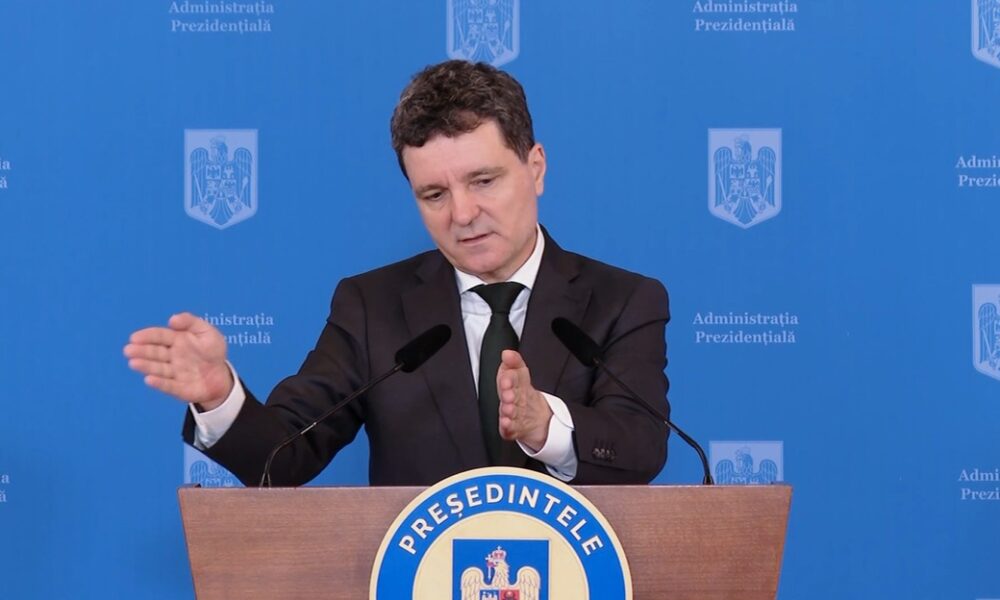« European Commission showed us a yellow card »

An eventual suspension of European funds will mean a vote of blame for the Bucharest government, which would increase the investors’ concerns even more and, at the same time, could determine the negative image, says the economic consultant Adrian Negrescu.
‘The European Commission showed us a yellow card, but it is possible to give us a red card from an economic perspective. On the one hand, a red card, ie a suspension of funds for Romania, would mean suspending most of this year’s investments. Over 90% of the investments of the state assumed on the budget law are associated with European funds. In other words, all the sites of highways, repairs, investments, which the state has started should be stopped or financed from loans that the state makes at interest of 7-8%, which would be an almost impossible mission. On the other hand, a suspension of European funds will mean a vote of blame for the Bucharest government, which would even increase the investors’ concerns about Romania and could also increase the negative image. In August, the Fitch agency is to confirm or downgrade the rating of Romania, depending on the financial measures that will be taken, and if we reach Junk, beyond a massive exodus of investors in Romania, we will wake up in an economic crisis, « said Adrian Negrescu.
According to him, Romania must come up with a concrete package of fiscal measures, economic measures, meant to solve the problem of the budget deficit.
‘We are not in an economic apocalypse. The private economy survives, the problem is in the public sector. We should lower the expenses in 6 months from now, every month, by about one billion euros, which is not a huge amount, given that we borrow one billion euros every week, on average, to support the Romanian state. There are solutions to reduce budgetary expenses to lower this budget deficit from 9 to 7%. The increase of taxes will be a toxic element for the economy and would be directly equivalent to pushing the economy towards recession, « added the economic consultant.
He pointed out that ‘the economic recipe that the authorities prepare at the moment could prove toxic to the economy’.
‘Unfortunately, it seems that we are moving from the famous pizza promoted today by President Nicușor Dan, which we have consumed in the last year, based on the electoral promotions, to a shaorma’ with all ‘from a fiscal-budgetary point, with all kinds of ingredients not very healthy for the Romanian economy, to the increases, to the increases, to the increases, to meant to save the budget deficit. I am afraid, however, that this economic recipe that the authorities are preparing at the moment could prove toxic to the economy, so that this shaorma with all from a financial-budgetary point of view will give us financial poisoning to send us to intensive care. We know very well who is waiting for us there: the « doctor » from the IMF, the one who will undergo us a treatment with tax shocks, « the source said.
In his opinion, there are two alternative solutions to increasing taxes, reverse taxation on the VAT area and extending the loan program from the population.
‘One of these is the reverse taxation on the VAT area, especially in the areas that have a major risk of evasion, which would bring 2-3 billion euros to the state budget. The second measure is the extension of the loan program from the population by offering government securities in another form, simpler and easier to understand by the population – and to be available anywhere, from the gas station, to the hypermarket, in any public place where you buy securities, so that you can help the Romanian state. There are financial solutions’ Outside the Box « to solve the problem of the 30 billion lei that we have to save in order to fit in the deficit target. There are solutions conveyed by the business environment, such as a mechanism for selling the debts that the companies have in the state budget, of 23 billion lei, a factoring mechanism, which can be recovered by at least half the money, State companies and sales of assets that are not essential for the public system in our country, « said Adrian Negrescu.
According to him, another solution to ensure liquidity is ‘to make a Vienna type agreement, as in the previous crisis, with the mother banks, which will provide us with a better interest line and to avoid staying after increasing taxes’.
‘Solutions exist, but I am afraid that he has no one to apply, there is no will and expertise. I would like to see that we will also walk on the tax side, to stimulate the entry of investment funds in Romania, to attract foreign capital and to promote an alternative solution to bank financing. Institutions such as the Proprietate Fund should be in the foreground in support of Romanian companies and for this you need a legal legislation, not tax increases, « said the economic consultant.
The European Commission published the Spring Package of the European semester on Wednesday, which analyzed the economic and social evolutions in the Member States. According to the document, the increase of the net expenses of Romania is well above the ceiling established by its corrective trajectory, presenting clear risks to correct its excessive deficit by 2030. Accordingly, the European Commission recommends a decision to find that Romania has not taken effective measures to correct the imbalance.
‘The Commission concluded that Romania is facing excessive macroeconomic imbalances. The vulnerabilities increased as the fiscal deficit and the current account of Romania aggravated, and the competitiveness of the costs was damaged in 2024. The high public deficit increased in 2024. The continuous increase of the public deficit, especially the increases of salaries and pensions in the public sector, increased the private consumption and the already high deficit of the current account.
Under these conditions, Brussels recommends a considerable tightening of fiscal policy to maintain net expenses within the limits of the corrective trajectory within the excessive deficit procedure and to strengthen the external position.








